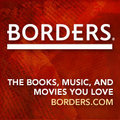

In an unprecedented move, the Wiley Literary Agency struck a deal with Amazon to publish 20 classic titles as ebooks on the Kindle. According to reports, this is the first time a literary agency moved into the publishing business.
Will this be a tren d as agencies struggle to survive in the dwindling print market? It might be. An agency would sign on an author, retain electronic publishing rights and then sell print rights to traditional publishers.
d as agencies struggle to survive in the dwindling print market? It might be. An agency would sign on an author, retain electronic publishing rights and then sell print rights to traditional publishers.
Agency revenues would increase considerably for ebooks, especially with the current structure where agencies only receive 15% of the author’s royalties.
However, the big question is will traditional publishers go along with this scenario or refuse to publish an author unless they retain electronic rights?
Will this be beneficial to authors?
Read Stephen Windwalker’s column for more information on this emerging development.
Read the report from The New York Times.
Now that Borders has entered the ebook revolution, we will also see lower ebook prices and market pressure to lower the cost of ebook readers.
From The Wall Street Journal – July 8, 2010
By JEFFREY A. TRACHTENBERG
Intent on catching up in the fast-evolving e-book arena, retailer Borders Group Inc. is launching an e-bookstore with titles provided by Kobo Inc., the Canadian e-book retailer in which it has an investment stake.
The nation’s second-largest bookstore chain in sales, Borders, based in Ann Arbor, Mich., acquired the stake in December and said Kobo would provide e-books for sale on Borders.com.
For consumers, the entrance of Borders into the e-book marketplace may mean lower prices on some titles. More>

Some interesting questions from a potential author –
Author: Do I have a better chance going the traditional route (agency, etc), than with Outer Banks Publishing, in order to get the book to the big screen?
Outer Banks: No. The content is what will get you there whether you self-publish, publish with a small publisher or large one. However, there are agents out there who specialize in film placement and they have connections in Hollywood and in the film industry if you can get one to represent you.
Author: Would my book make its way into the main stream bookstores if I went with Outer Banks?
Outer Banks: It would depend on sales and demand. Keep in mind a book is a product like any other product and if people love it, they will demand it and it will sell. People will ask for it in bookstores and the bookstores will have to keep it on their shelves.
Let’s say you landed a major publisher, one of the big 6 in New York. They would place two copies in all the major book stores given the state of book sales today. Two things could happen: it sells and the bookstore orders more copies or it sits there until the 90-day consignment period is over and the bookstore either discounts it or sends it back to the publisher.
With roughly 100,000 books in a given big box bookstore (Borders, Barnes and Noble, Books-a-Million) how is your book going to stand out? Having your book in a bookstore does not guarantee sales or exposure anymore. Before the Internet and Amazon, bookstores were the only place to get books. Now most books in print as well as ebooks are sold online.
The current book selling trend is this: ebooks are outselling printed books. Dan Brown‘s The Lost Symbol, presold more copies as an ebook than print titles. Bookstores are ultimately forced to stock less.
But don’t fear, bookstores will always be around just like the printed book, but they may be a lot smaller. If they want to stay large, they will have to reinvent themselves, perhaps into a literary center where authors, writers, and readers can meet and have open discussions, debates or writing sessions.